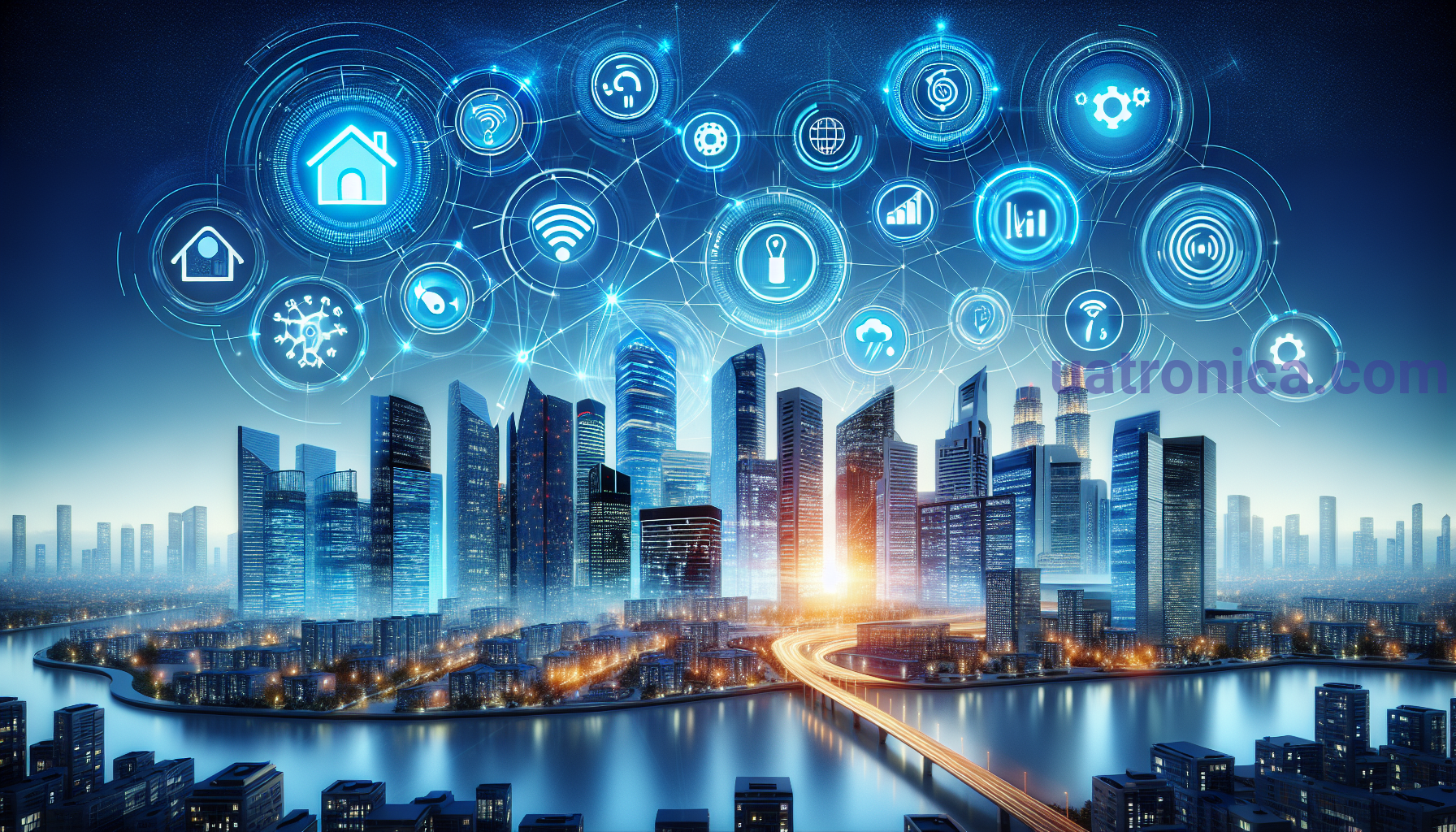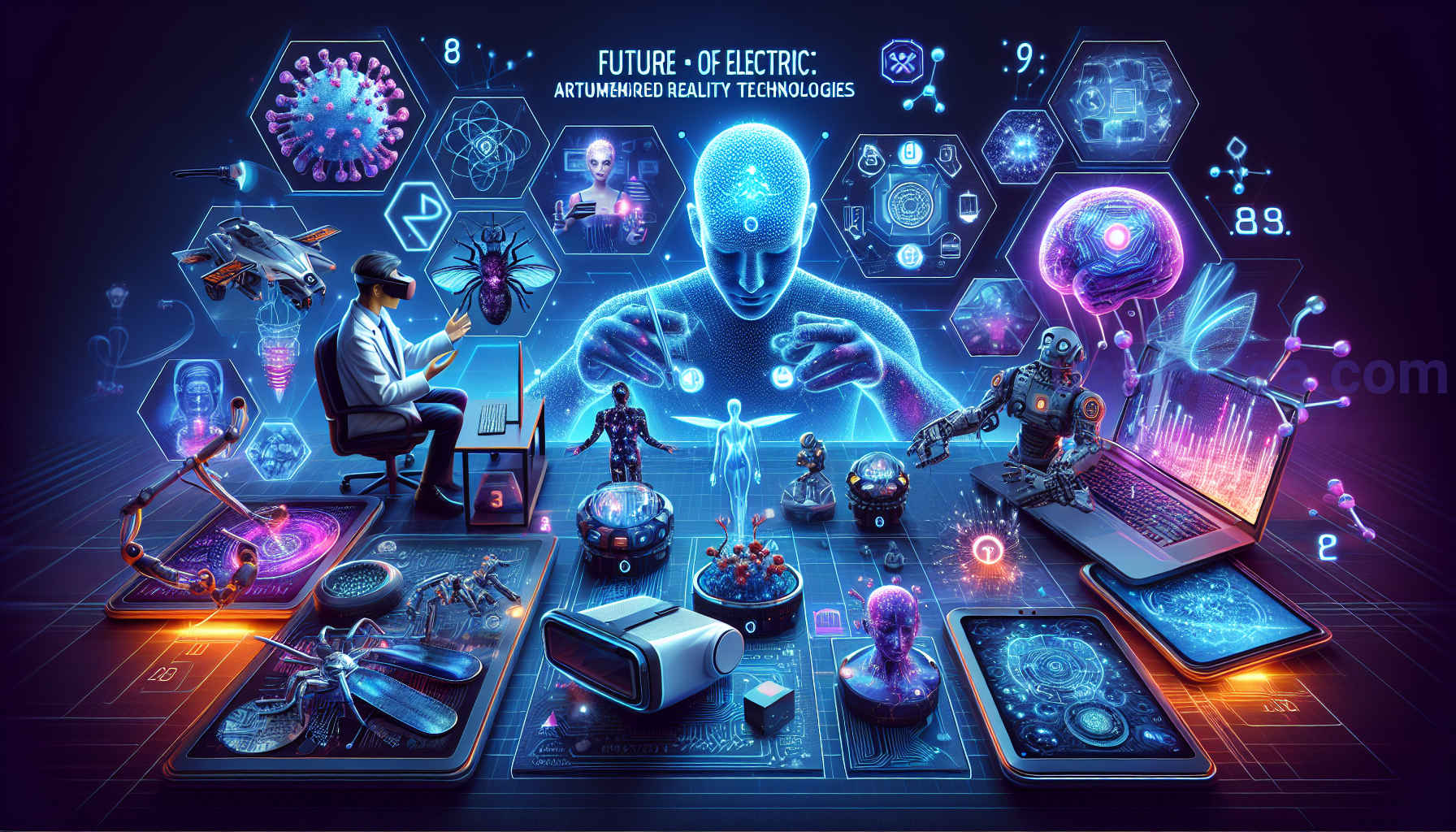13 Amazing Technologies That Will Shape the Future of Electronics: An Expert's Opinion
The world of electronics is undergoing spectacular changes that will not only improve our daily lives, but also provide new opportunities for innovation. In this article, we take a look at 13 mind-blowing technologies that could shape the future of electronics, according to leading experts in the field.1. Quantum Computers
Quantum computers represent a new level of information processing. They use the principles of quantum mechanics to perform calculations that are much faster than traditional computers. For example:
– Advantages: Scientific discoveries, complex simulations, and cryptography. – Challenges: Scalability and stability issues. Quantum computers can transform the gas and oil and gas industry by optimizing processes and reducing costs.2. Artificial Intelligence (AI)
Artificial intelligence is a technology that is actively developing and integrated into all areas of electronics. Thanks to AI, devices become “smarter” by learning from data. This includes:
– Intelligent assistants: Alexa, Google Assistant. – Autonomous systems: Self-driving cars, drones. The cost of implementing AI in a business can be significant, but it is offset by increased efficiency.3. Blockchain Technologies
Blockchain is a decentralized registry capable of providing transparency and security in data processing. In particular:
| Advantages | Disadvantages |———————–|————————| | Security | Difficulty of implementation | Transparency | High energy costs | Cost reduction | Regulatory barriers The integration of blockchain into financial services and logistics is being actively discussed by experts today, thanks to the reduction of fraud risks.4. Internet of Things (IoT)

# Advantages of IoT:
– Convenience in management: automation of home devices. – Efficiency: reducing energy costs. However, the growing popularity of IoT also raises security concerns that require new solutions. You can familiarize yourself with the detailed aspects of IoT technology in the article "What is IoT".5. 5G Technologies
5G is becoming the standard for new mobile networks, allowing to significantly increase the speed of data transmission and to ensure communication with a larger number of devices. This opens up new opportunities for:
– Augmented reality (AR) – Virtual reality (VR)# Benefits of 5G:
– High speed – up to 10 Gbps – Low latency – less than 1 ms The improved mobile network promises new levels of development in areas such as transport and healthcare.6. Smart Materials
These materials can change under the influence of external factors such as temperature or pressure. They open new horizons for devices:
– Cloud technologies: Sensors that respond to the environment. – Medicine: "Smart" bandages that monitor the state of the wound. Their use is expected to be built into consumer electronics and medical devices.7. Wearable Technologies
Wearable technologies, from smart watches to fitness trackers, are becoming an integral part of our daily lives. They are able to monitor health, offer personalized training and even warn about medical problems.
– Integration with IoT: By connecting to other devices, the functionality can be greatly expanded without problems.
8. Technologies of Virtual and Augmented Reality
On the basis of AR and VR technologies, developers create an impressive user experience in both games and business applications. They are used for educational purposes, to teach and interactively demonstrate material, and in medical simulations.9. Nanotechnology
This technology allows manipulating materials at the atomic and molecular levels. Nanomaterials are used in various fields:
– Electronics: Supercapacitors and nanoconductors. – Medicine: Targeted drug delivery.10. Systems on a Chip (SoC)
Co-design of components on a single chip has changed the electronics industry. This increases performance and reduces the size of devices, which is an important component for smartphones and "smart" household appliances.11. Autonomous Technologies
Technologies that allow machines to make autonomous decisions are being actively integrated into the automotive industry. Autonomous vehicles can provide safer and more efficient ways to get around.12. Advanced Battery Technology
Innovations in battery technology, such as solid-state batteries, offer safer, more capacious and faster options for powering electronics.13. Clean Technologies
Sustainable development and environmental technologies continue to gain popularity. Innovations in energy efficiency and renewable energy sources, including solar panels and wind turbines, ensure a reduced impact on the environment.# Conclusions
These 13 technologies have great potential to change the world of electronics. Innovations in each of these fields promise safety, convenience, efficiency and interactivity in everyday life. If you want to learn more about technology that is changing the world, don't miss our article on the future of technology, here.In the wake of these technologies, we can expect new advances that will make our lives easier and more interesting, but they also require careful attention to safety and ethics, which places a certain responsibility on all of us.










